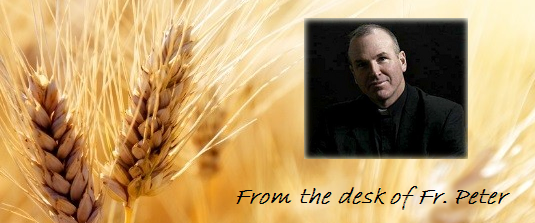Peace be with you all!
Fr. Ron Rolheiser, a theologian and spiritual writer, described a state of being that is natural to the human person in one of his articles. “At the center of our lives there is an innate tension. On the one hand, something in us wants to be different, to stand out, be separate and show itself to be unique and independent. We have an equally strong, almost contradictory impulse that yearns for unity, community, family and intimacy, connection, solidarity and oneness with others and the world.”
In the Gospel stories, we see the people who stand out as those who approach Jesus in a state of humble, vulnerability and faith with a deep need for another person’s help. The crowd represents those who are not seeking God at that level. The woman with the hemorrhage is a great image for the socially ostracized and the one who feels unclean or unworthy within, or the person who feels like a persistent slow leak is draining them of life and hope. It could be from some hurt from the past that no ordinary doctor or medication can heal. It could be an addiction. Jairus, a competent and upper-class individual, who falls to his knees before Jesus offers an image of what it is to be overwhelmed with worry, fear, helplessness and desperation. Jesus’ response to those who approach him in complete sincerity is the same: the fountain of his Merciful Heart pours forth a grace of healing and deliverance, and in the little girl’s case, the grace of final salvation.
As baptized Christians, we have to make an effort to overcome our desire for independence in order to approach Jesus in the same way as the woman with the hemorrhage and Jairus. Frequently, it is only through difficult events and situations that we become aware of our deep need for the help of God and others. Sometimes the process takes years but it doesn’t have to. There are many stories of those who came to the point when they called to God from the depths of their heart and soul. They always remember God’s loving response. There is nothing like it. They will never forget it. Do you need God’s help? Do you want to be part of something far greater than your own personal reality? Make a prayer of surrendering your life to God and enter the joy-filled communion of the Body of Christ. May God bless you always! +++ Fr. Peter

